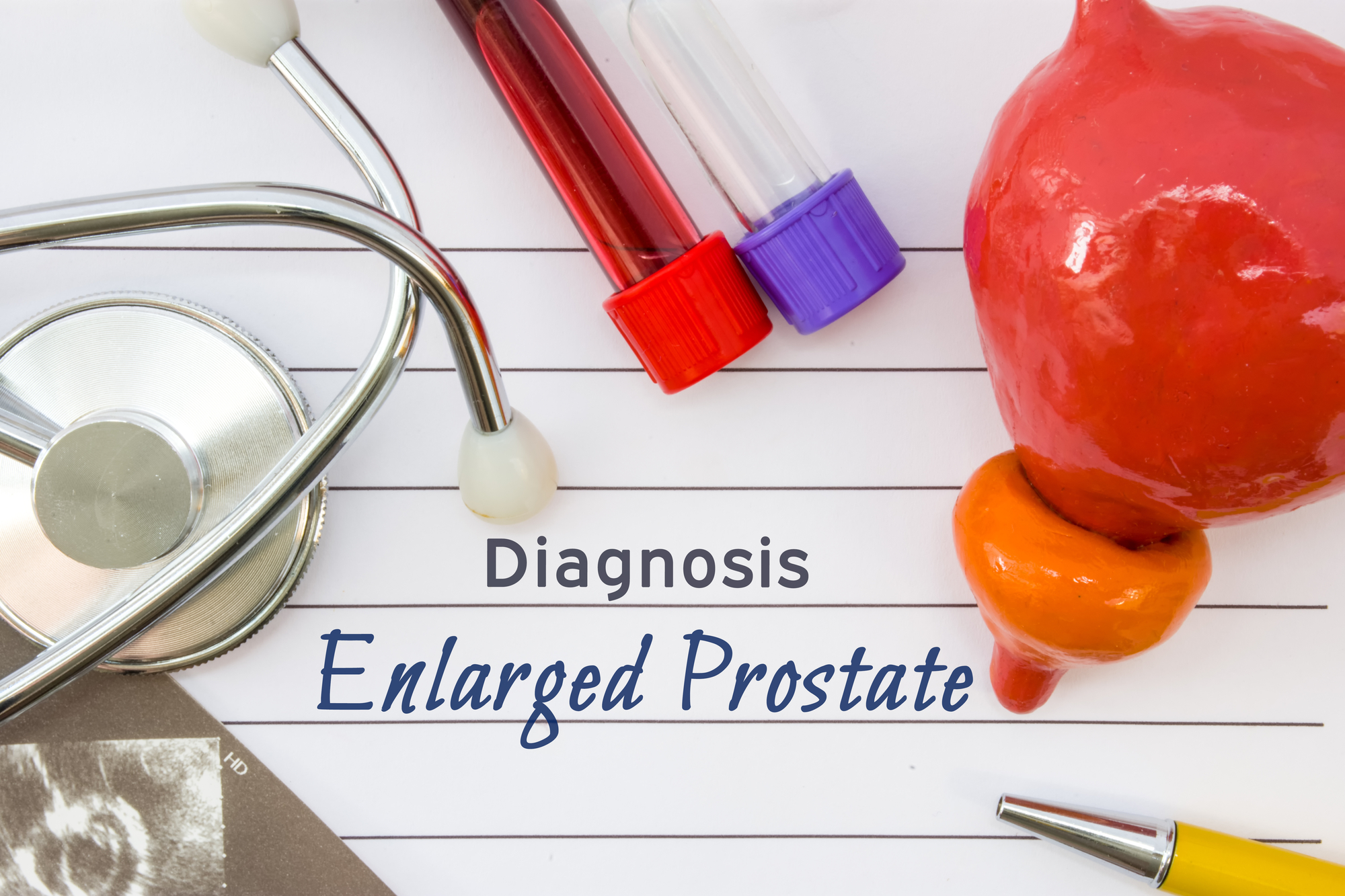BPH, also known as benign prostatic hyperplasia, is the medical term for an enlarged prostate. According to www.ProstateHealthGuide.com, BPH is the most common prostate health problem among men over age 50. In fact, half of all men between ages 50 and 60 will develop BPH, and 90 percent will develop it by the age of 80. Factors that increase a man’s risk of developing BPH are age (starting at age 45), family history, and some medical conditions, such as obesity.
Symptoms of BPH may be uncomfortable and include frequent, and an often urgent need to urinate, especially at night; the need to strain or push to get urine flowing; an inability to completely empty the bladder; dribbling or leaking after urination; and weak urine stream. As the prostate slowly gets bigger, symptoms may worsen and interfere with sleep, physical comfort, routine activities, and sexual function. While there is no connection between BPH and cancer, the urinary symptoms associated with BPH can bring on serious conditions if left untreated. These include an inability to urinate, urinary tract infections, bladder, kidney, or urethra damage, bladder stones, and incontinence.
Treatment is recommended for BPH symptoms that interrupt your life, and include active surveillance (sometimes called watchful waiting), drug therapy, and surgery. Drugs called alpha-blockers are the most common treatment for managing BPH symptoms. Alpha-blockers relax the muscles around the prostate so that there is less pressure on the urethra, and quickly improve urinary flow. Another type of drug, called a 5-alpha-reductase inhibitor, is also sometimes prescribed, and is designed to shrink the prostate gland. Other therapies are also available.
Surgery is a treatment option that is usually used only in patients with major BPH complications, such as frequent urinary tract infections or bladder stones. Other non-surgical approaches use heat therapy to make the size of the prostate smaller to widen the urethra. These include microwave therapy, radiofrequency therapy, electrovaporization, and laser therapy.
Although BPH can cause uncomfortable symptoms, it’s important to try to minimize the impact it has on your life by staying active, trying to empty your bladder when going to the bathroom, urinating on a schedule regardless of whether or not you have to go, refraining from drinking liquids after 8 pm, and limiting the consumption of alcoholic beverages.
Men may avoid treating certain BPH symptoms because they’re concerned about side effects related to sex. However, these side effects may be related to lower urinary tract symptoms (LUTS) associated with BPH. As men get older, some changes in sexual function, like a decrease in libido and erectile dysfunction, do happen; however, experts have found a link between LUTS due to BPH and certain sexual problems.
It is important to talk to your doctor about any issues you are having that might be linked to BPH so you may be treated properly.












